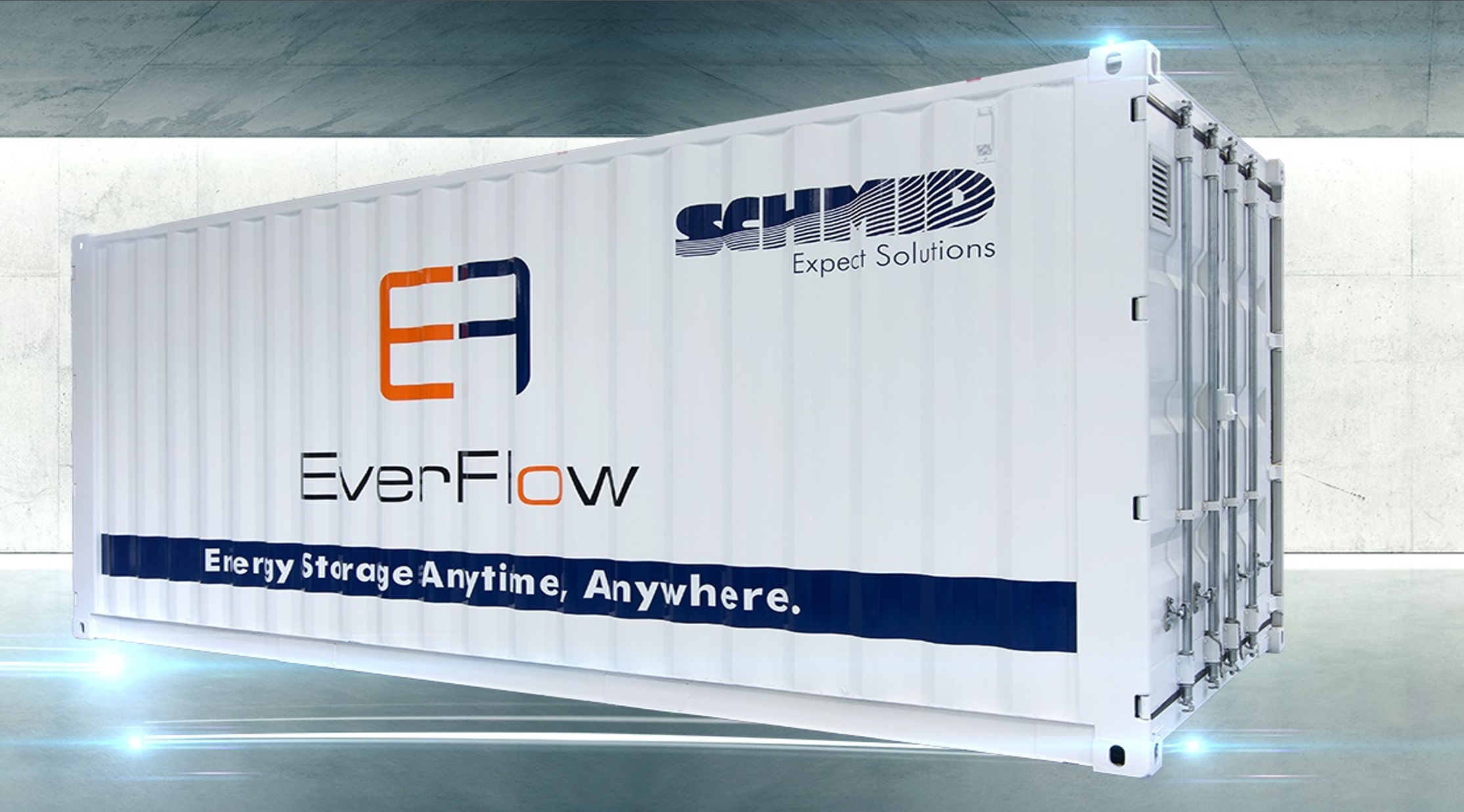Schmid Pekintaş targets redox flow battery cost reduction with new Turkish gigafactory
Source:pv magazine
Production equipment supplier Schmid is expanding its joint venture with the Pekintaş Group to establish a vanadium redox flow battery production facility with an output of 3 GWh. The factory is scheduled to begin production in 2026.

Image: Schmid
As the search for cost-effective longer duration energy storage technologies intensifies, a new manufacturing operation in Turkey aims to bring flow battery systems into series production – establishing the scale, supply chain, and processes required to enhance the technology’s competitiveness. The move comes in the form of an expansion of an existing joint venture between Germany’s Schmid and Turkish construction material producer Pekintaş Group.
“The design capacity [of the factor] will be around 3 gigawatt hours at full capacity. We want to develop this factory in the next two years. It will be a significant investment, and we are very confident it will have a major impact on our cost structure,” Henrik Buschmann, the VP for Energy Systems at the Schmid Group tells ESS News.
The new venture is an expansion of a long-running JV between the two companies. Schmid Pekintaş has been producing solar modules in Turkey since 2014. It currently operates a facility with an annual capacity of 1 GW.
“It’s been a success story for the production of PV panels and so [CEO and founder] Christian Schmid, on the one hand and [Penkinas founder and president] Mr Olcay on the other started talking about copying this success story for the next product – which is a battery and is also very nicely fitting into the PV portfolio. It’s a nice combination,” says Buschmann.
The deal sees the Pekintaş Group make an investment in Schmid Energy Systems and “allocate significant funds” to the establishment of the factory – the companies announced in a statement last week.
Previously, in 2019, Schmid Group founded a JV with Nusaned Investment to produce its flow batteries in Saudi Arabia. The project was officially terminated at the start of 2023, Schmid reports.
Product and technology
The vanadium redox flow batteries produced by Schmid Pekintaş represent the third generation of the company’s technology, which it has been developing for the past decade. Schmid has considerable experience in wet chemical processing equipment for the solar industry that it leverages for flow battery systems.
“It uses a lot of similar components like our wet chemical processing machines,” says Buschmann. “Schmid has this in our DNA: to build machines with pumps, tanks, and controllersto stabilize processes. What, of course, was new when we started 10 years back was the electrochemical side of it.”
The new facility will produce flow batteries in a 10-foot container with 15-30 kW of power and 120 kWh in energy storage capacity and a 40-foot container size with 200 kW / 800 to 1600 kWh.
“We will start with four-hours of storage capacity, containerized, and then we also have eight hours and beyond,” explains Buschmann.
Market fit
Turkey presents ‘significant opportunities’ for long-duration storage, driven by strong incentives for hybrid renewable energy projects. The companies point to “strong incentives” for hybrid renewable energy projects with reserved capacities under national auctions. Buschmann adds that there is also support for new manufacturing operations in the country.
In recent years Turkey has emerged as an attractive location for solar manufacturing. Alongside Schmid Pekintaş, there are more than 50 module assembly operations in the country with a handful of producers expanding further upstream into PV cell and even ingot and wafer production.
Notable vertically integrated solar manufacturers in Turkey include Kalyon PV, CW Enerji, and Smart Solar, with these producers supplying some markets outside of the country. Chinese producers such as HT-SAAE have also operated PV production facilities in Turkey.
“We basically want to serve this local market and of course also other countries or regions like Europe and the Balkans, maybe Middle East and Africa,” says Buschmann. “But at the starting point, the focus is Turkey and we think there will be a strong demand.”
BloombergNEF charts 5.6 GW/357 GWh of long duration storage capacity installed globally, with vanadium redox flow batteries accounting for 16% of that capacity.
Schmid Pekintaş has previously made moves to integrate energy to its solar project portfolio. In August, it signed a memorandum of understanding (MoU) with thermo-electric energy storage developer Malta Inc. to add storage capacity to solar projects. Pekintaş reports that the redox flow battery production will be complementary to this endeavour.
“At Pekintaş, we are a strongly integrated group company with PV module manufacturing, EPC, and project development capabilities. We will continue to develop projects with Malta and utilize our mutual strengths not only in solar but also in storage,” the company said in a statement.
Schmid Pekintaş says that its flow batteries can be used in a range of applications including in utility scale, on grid applications for the time shifting of renewables; to microgrids and offgrid applications; and in commercial settings such as in support of data centres.
